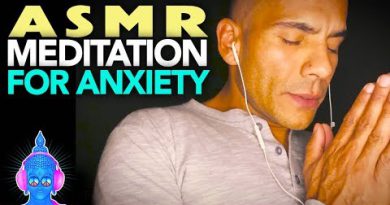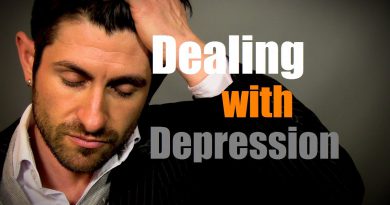Generalized anxiety disorder and coping strategies
Anxiety is an enhanced state in which one is extremely sensitive to detecting potential threats. Generalized anxiety disorder (GAD) is one type of anxiety disorder that is known to be associated with excessive, uncontrollable worry about everyday things. It can severely impact one’s daily life and can be daunting. This video outlines the key features of GAD and ways to cope with it.
This video was made by McMaster Demystifying Medicine students Abeer Adil, Ali Hamade, Mina Hanna, and Sagaana Thushiyenthan.
Copyright McMaster University 2018.
References:
(2018). Tips to manage anxiety and stress. Retrieved from https://adaa.org/tips-manage-anxiety-and-stress
American Psychiatric Association. (2013). Diagnostic and statistical manual of mental disorders: DSM- 5. Washington, DC: American Psychiatric Association.
Beesdo, K., Knappe, S., & Pine, D. S. (2009). Anxiety and anxiety disorders in children and adolescents: developmental issues and implications for DSM-V. Psychiatric Clinics, 32(3), 483-524.
Dulin, P. L., & Passmore, T. (2010). Avoidance of potentially traumatic stimuli mediates the relationship between accumulated lifetime trauma and late‐life depression and anxiety. Journal of Traumatic Stress: Official Publication of The International Society for Traumatic Stress Studies, 23(2), 296-299.
Heim, C., & Nemeroff, C. B. (2001). The role of childhood trauma in the neurobiology of mood and anxiety disorders: preclinical and clinical studies. Biological psychiatry, 49(12), 1023-1039.
Karen Rowa, M.A., & Antony, M.M. (2002). Generalized anxiety disorder (GAD).Retrieved from https://www.stjoes.ca/health-services/mental-health-addiction-services/mental-health-services/anxiety-treatment-and-research-clinic-atrc-/definitions-and-useful-links/generalized-anxiety-disorder-gad-
Lau, J. Y., Eley, T. C., & Stevenson, J. (2006). Examining the state-trait anxiety relationship: a behavioural genetic approach. Journal of abnormal child psychology, 34(1), 18.
Rodriguez, D. (2009). How to handle panic attacks. Retrieved from https://www.everydayhealth.com/anxiety/how-to-handle-panic-attacks.aspx
Seedat, S., Scott, K.M., Angermeyer, M.C. (2009). Cross-national associations between gender and mental disorders in the World Health Organization World Mental Health Surveys. Arch Gen Psychiatry, 66(7), 785–795.
Teichman, M., Barnea, Z., & Rahav, G. (1989). Sensation seeking, state and trait anxiety, and depressive mood in adolescent substance users. International Journal of the Addictions, 24(2), 87-99.
Understanding and finding help for anxiety. Retrieved from https://ontario.cmha.ca/documents/understanding-and-finding-help-for-anxiety/





